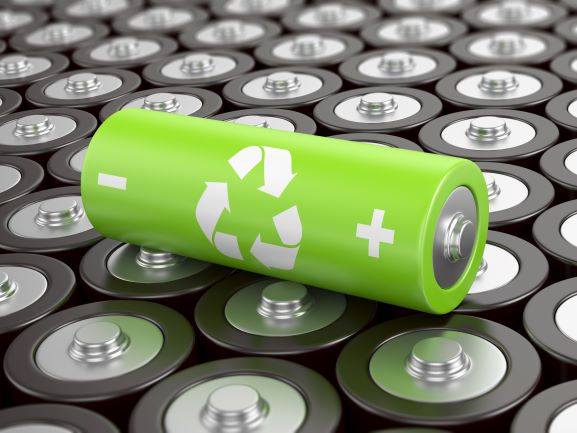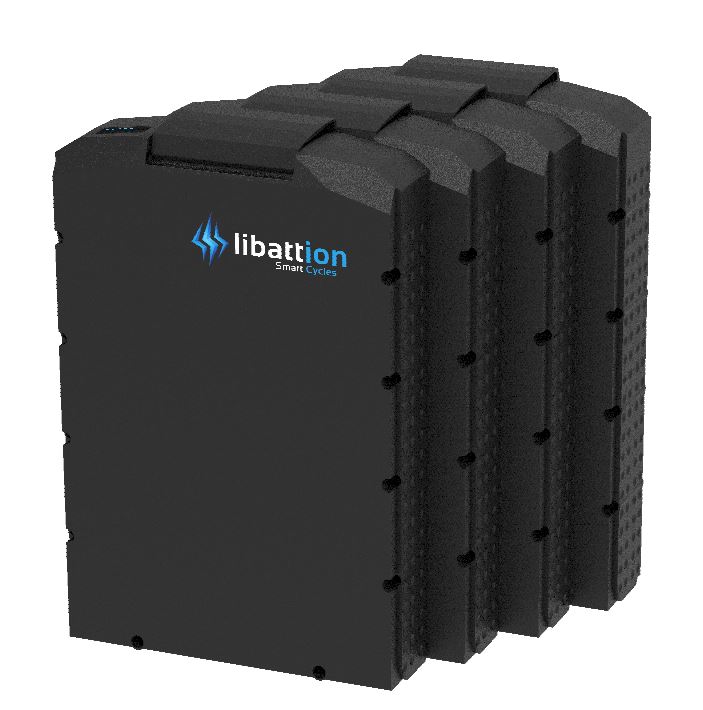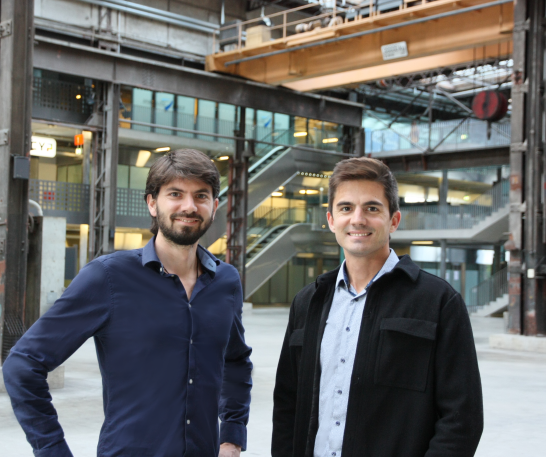A young company from Zurich is integrating recyclable battery technology into electromobility and in doing so, promoting a more sustainable use of batteries. With the support of Innosuisse, they are working together with research institutes to develop state-of-the-art solutions.

Libattion was founded in 2018 by Stefan and Nicolas Bahamonde. Their goal: to design a sustainable value chain for batteries to accelerate the transition to environmentally friendly electromobility. “We always wanted to reuse used batteries from electric vehicles,” says Stefan Bahamonde, Co-founder and CEO of Libattion. Circularity has been a central theme from the beginning.
Giving lithium-ion batteries a second life
The focus is on upcycling batteries. Libattion only uses high-performance batteries from reputable manufacturers such as Samsung or Panasonic. Before the batteries become valuable business assets again through upcycling, Libattion carefully checks the used batteries for their technical condition using various criteria. They then assemble intelligent battery packs with the help of an automated welding robot. The main product is called e-Bricks, an intelligent 2.5 kWh battery pack. These battery packs are then installed in light electric vehicles for customers. The areas of application are wherever high-performance lithium battery packs are required, such as in forklift trucks or golf carts. For this purpose, the company uses a printed circuit board developed in-house for data connectivity and the battery management system with the necessary sensor technology. This means that the AC battery packs are also safe in harsh environments, even as a replacement for diesel generators in conjunction with an inverter, as a current project with SBB shows.

With its “Battery as a Service”, Libattion goes one step further. This circular economy approach means that the supplier remains responsible throughout the entire life cycle of the product. In this way, they can extend the life of the batteries through constant monitoring of the battery condition and regular maintenance. Selling the performance of the product rather than the product itself has benefits for both businesses and consumers that extend far beyond convenience and flexibility. A circular economy is a regenerative system in which resource use and waste, emissions and energy losses are minimised by slowing down, closing and narrowing energy and material cycles. The “Product as a Service” (PaaS) model is thus an essential element on the way to creating a circular economy by slowing down the material cycles.
The quality of the battery maintenance is crucial, so Libattion has developed a digital platform to track all battery data and offer predictive maintenance to its customers. “Our solution is based on upcycling and Battery as a Service. This reduces the CO2 footprint by 160 kg CO2 / kWh compared to conventional lithium batteries”, says Stefan Bahamonde, Co-founder & CEO of Libattion.
Cooperation plays an important role
Things are moving at Libattion. The young company now has ten industrial customers (B2B) in the light e-mobility and industrial machinery sectors in Switzerland and Germany. So far approx. 300 kWh upcycled battery packs have been sold. All batteries are connected to Libattion’s cloud platform so that all battery data can be monitored remotely. The more batteries that are connected, the better the data algorithms are for determining the “state of health”.
Cooperation plays an important role in bringing about a circular economy. Libattion works with utility companies for distribution. It sources the batteries from recycling companies such as Batrec Industrie AG and Librec AG. Cooperating with universities and research institutea is an important component for validating the technology and its safe application. Innosuisse has encouraged this cooperation as part of an innovation project run by the company with ZHAW University of Applied Sciences as principal research partner and BFH University of Applied Sciences. Innosuisse promotes these cooperative partnerships and contributes to the project costs. The science-based innovation project will allow Libattion to test its “Battery as a Service” model, where batteries are not sold but offered through monthly subscription models. “Thanks to Innosuisse, we can use the e-Bricks in the mini sweepers for the city of Winterthur and validate the new innovative business model”, says Stefan Bahamonde.
Ambitious vision
By 2030, Libattion plans to produce 150,000 kWh of upcycled batteries or prevent 23,400 tonnes of CO2, which corresponds to the average annual CO2 emissions of 5,500 inhabitants of Switzerland. To meet capacity until 2030, the team is building a fully automated production plant for the accumulators. The aim is to be able to offer larger battery systems for the energy storage of peak loads and renewable energies in the future.
Last modification 03.07.2023






